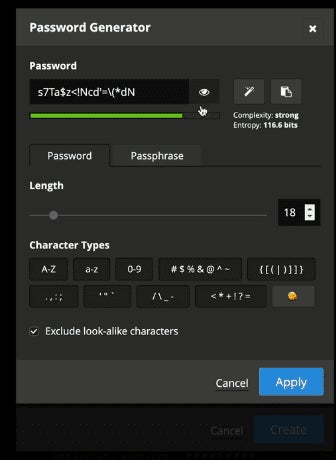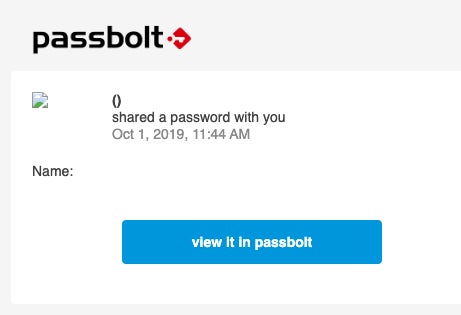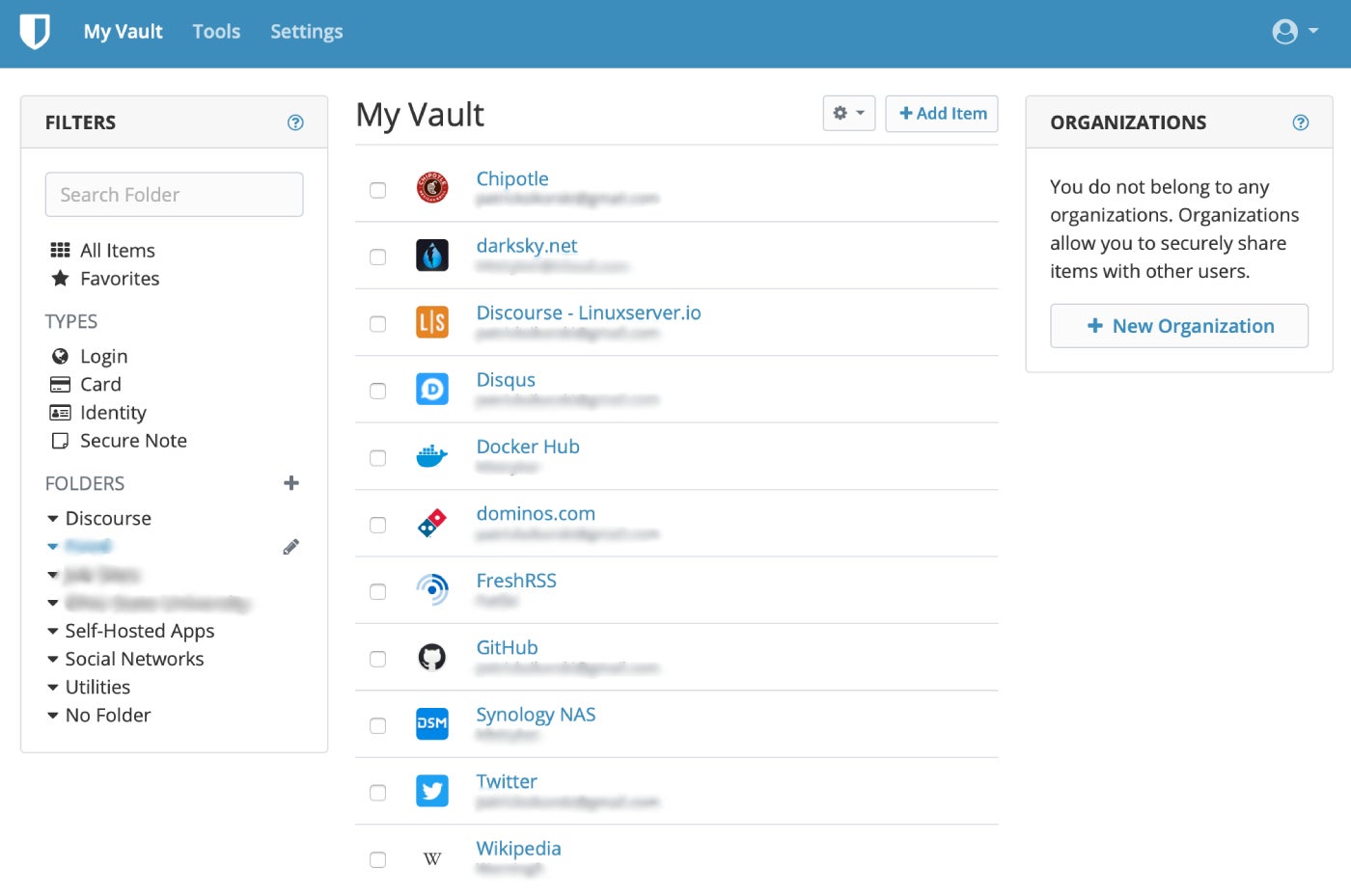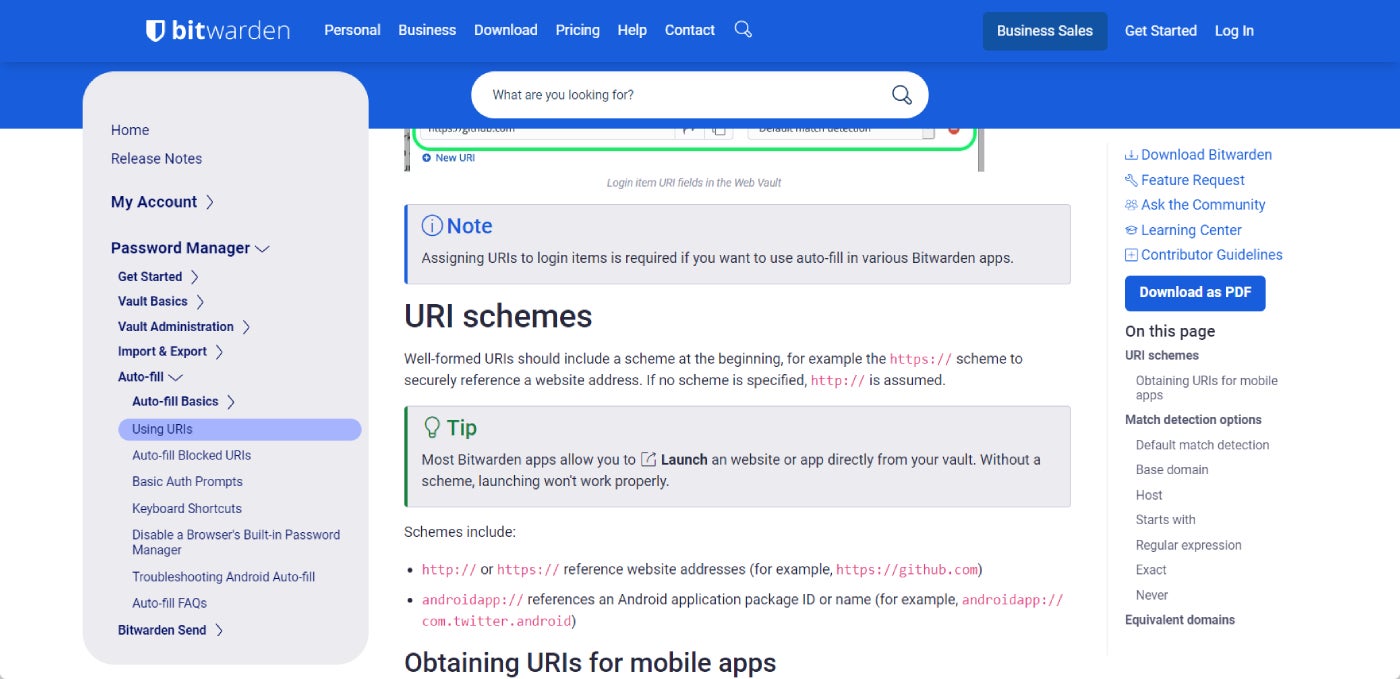Bitwarden and Passbolt are two popular free open-source password managers. Both are a good fit for most of your personal or business needs. But there are differences. As I looked into them in more detail, it became apparent that different use cases favor one or the other.
Bitwarden vs Passbolt: Comparison table
| Starting price | ||
| Platforms supported and Browser extensions | ||
| Security | ||
| Open Source | ||
| Free plan | ||
Bitwarden vs Passbolt: Pricing
Winner: Bitwarden
Bitwarden wins on pricing as it is a little cheaper than Passbolt. I noted, however, that as the number of users escalates to large enterprise levels, the price gap between these products is reduced.

Bitwarden pricing
Bitwarden offers two levels of plans: one tier for personal and family use and another for businesses only. A free trial is available for the Families, Teams, and Enterprise plans. The pricing for those plans is as follows:
Bitwarden Personal has a free version that is $0 forever for unlimited devices, a premium version at $10 billed annually ($0.83 per month), and a family version for $40 billed annually ($3.33 per month) for up to six users.
SEE: 5 Best Password Managers for Android in 2024 (TechRepublic)
Bitwarden Business has three versions. Teams is $4 per user per month, billed annually; Enterprise at $6 per user per month, billed annually; and a custom tier, which requires a direct quote from the sales team based on what level of customization is required.
Passbolt pricing

Similar to Bitwarden, Passbolt offers several levels of pricing. The community edition is free for unlimited users.
SEE: 6 Best Free Password Managers for 2024 (TechRepublic)
The business version is $49 per month for 10 users billed annually. When I entered 200 users, the price changed to $980 per month; and for 4,000 users, it was $19,600 per month. As the number of users rises, the price premium for Passbolt compared to Bitwarden diminishes.
Enterprise pricing is custom and quotes are available on request.

Bitwarden vs Passbolt: Feature comparison
Platforms and browsers supported
Winner: Bitwarden
Both products have extensive support for platforms and browsers, but I give the nod to Bitwarden as it has a couple more. It supports Mac, Linux, Windows, Android, iOS, as well as browser extensions Google Chrome, Safari, Firefox, Vivaldi, Opera, Brave, Microsoft Edge, Tor Browser, and DuckDuckGo for Mac.
SEE: 6 Best Open Source Password Managers for Windows in 2024 (TechRepublic)
Passbolt offers almost as many platforms and browser extensions. But it is missing a few, such as Opera, Tor, and Duckduckgo for Mac. The Passbolt user community gives a few workarounds for some of these.

Security
Winner: Passbolt
I scored Passbolt ahead of Bitwarden as Passbolt offers a broader range of security features than Bitwarden and a greater level of granularity.
Bitwarden offers encryption, 2FA, and is regularly audited by third-party security firms and independent security research to look for weaknesses. Password sharing is limited within the free version. Those wanting to self-host a password manager should be aware that Bitwarden only offers this in its enterprise version.
Passbolt offers the same security features as Bitwarden and more. This includes more granular access rights and password sharing. Passwords can be shared broadly or narrowly. Self-hosting can be done on most versions. The free version offers unlimited password sharing.
Ease of use / customer support
Winner: Bitwarden
Both products focus on online documentation as their main level of support. However, Bitwarden has a ticketing line with a customer service rep that will respond. It is also easier to use than Passbolt. Hence, I have Bitwarden as the winner in this category.

Bitwarden is relatively easy to use. It comes with the automatic synching of individual passwords in the personal and family editions. Organizational passwords sync every 30 minutes. In contrast, Passbolt’s broader range of enterprise features require a slightly higher level of technical sophistication.
SEE: Bitwarden Review: Features, Pricing, Security, Pros & Cons (TechRepublic)
Bitwarden offers multiple avenues for help, including written articles in the Help Center and video tutorials in the Learning Center. A community forum has a section where you can ask other users questions. If none of that works, submit a support ticket via the website and the customer service team will get back to you. There’s no way to contact them through phone or live chat, so you’ll have to wait until they respond to you.
As Passbolt is entirely open-source, it doesn’t have a customer support team that you can contact for help. There is an extensive Help Center with plenty of documentation, installation guides, a blog, and an active community forum where help is available from other users.
Both Passbolt and Bitwarden offer integrations with popular browsers and operating systems. However, Bitwarden has a wider range of integrations, including support for a wider range of third-party applications and plugins. For example, recent integrations include Microsoft Sentinel Okta, and Azure AD.

Open source
Winner: Passbolt
Bitwarden and Passbolt are both regarded as open-source password management tools. But it is a question of degree. The source code for Passbolt is publicly available, allowing for greater transparency and community collaboration in the development and auditing process. Bitwarden, on the other hand, does not provide access to its source code, limiting the ability for independent verification and customization. Its source code is hosted on GitHub so that you can review how secure it is, but it is technically known as a closed-source tool.
I give Passbolt a higher grade as it is 100% open source.
Bitwarden pros and cons
Bitwarden pros
- Free version for individuals with unlimited passwords.
- Affordable pricing.
- Easy to set up and use.
- Various options for customer support and training.
Bitwarden cons
- Free version imposes some limitations in terms of features and password sharing.
- Only partially open source.
- Self-hosted version is only available in the enterprise version.
Passbolt pros and cons
Passbolt pros
- 100% open source.
- Wide range of security features.
- Excellent in large-scale installations.
Passbolt cons
- Pricing is generally higher than Bitwarden.
- Customer support is limited.
Bitwarden vs Passbolt on Reddit
Over on Reddit, users had plenty to say about the two companies.
“Generally speaking, Bitwarden is built for individual use, while Passbolt is built for collaboration and security,” said one Reddit user. “Bitwarden allows sharing, but not at a granular level, for instance you can share an entire vault (containing multiple passwords) with an entire team but not a single password. In Passbolt it is possible to share passwords with more granularity in literally two clicks. Security: in Passbolt, the secret key (used for signing in and encryption / decryption) is auto-generated (or provided by the user) at first login. Bitwarden … provides less entropy and means that when you are sharing passwords with a group of users, the encryption is as strong as the weakest master password of the users it is shared with. Passbolt also provides protection for anti-phishing, logs tampering, accesses revocation, and more. It doesn’t mean that Bitwarden is less secure, there is no black and white, just that if you have higher security requirements you should definitely look into both the security models in details since there are scenarios that might be covered in one and not the other.”
SEE: How to Create an Effective Cybersecurity Awareness Program (TechRepublic Premium)
Another Reddit user in the same posting, however, said, “Why would you consider anything other than the open source, tried and true Bitwarden?”
Another user in the same thread noted, “Passbolt is more so for teams sharing passwords for managing corporate or developer accounts. Whereas Bitwarden is just for managing passwords and logins in general.”
Should your business use Bitwarden or Passbolt?
Choose Bitwarden if:
- You want a good general password manager.
- You need a password manager for individuals, families, or groups of less than 1,000.
Choose Passbolt if:
- If you want 100% open source.
- If you have more than 1,000 users.
- If you need to share passwords regularly among teams.
SEE: 5 Best Password Managers Built for Teams in 2024 (TechRepublic)
Review methodology
To compare Bitwarden against Passbolt, I considered a variety of factors. These included cost, range of security features, and customer support. To add even more depth to this review, third-party reviews, Reddit, and analyst opinions were consulted.

